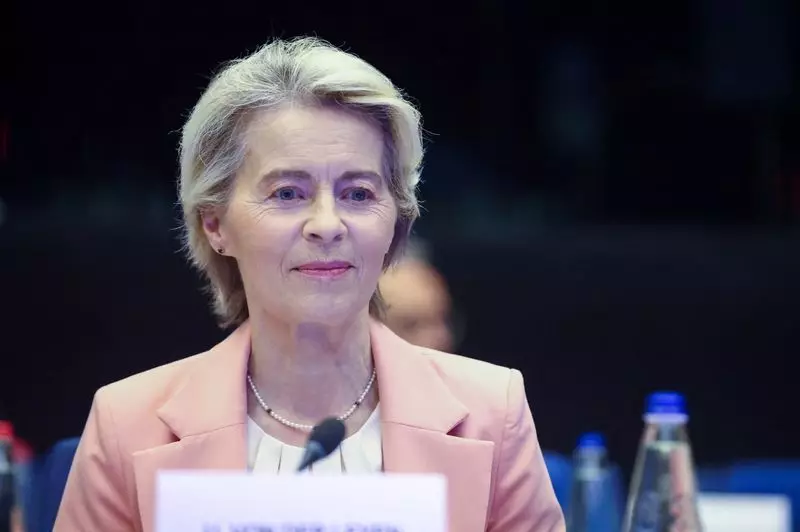In a significant reshuffling of roles within the European Commission, President Ursula von der Leyen has unveiled her new team, which includes Spain’s Teresa Ribera as the incoming antitrust commissioner and Estonia’s Kaja Kallas taking the helm of foreign policy. The Commission’s reorganization is not just a routine update but a strategic response to a rapidly changing geopolitical landscape, characterized by Russian military aggression and escalating global competition. With the addition of Lithuania’s Andrius Kubilius, the EU will now have its first dedicated defence commissioner, a move reflecting the bloc’s urgent need to foster military manufacturing capabilities.
The European Commission remains a cornerstone of the EU, wielding significant authority in legislative processes, trade negotiations, and corporate regulation. Each member state holds one seat at this powerful institution, akin to a ministerial position in a national government, although the political significance of each role varies considerably based on its responsibilities. As the European Union transitions into this new phase, the selection of commissioners signals a pivotal realignment to meet contemporary challenges head-on.
Von der Leyen emphasized her administration’s commitment to fostering prosperity, security, and democratic values while ensuring robust economic competitiveness, particularly in the realms of green technology and digital advancements. Security has emerged as a dominant theme, radically reshaping the Commission’s priorities in light of the ongoing conflict in Ukraine. Von der Leyen underscored that climate change remains a critical backdrop for all initiatives, but the immediate threats posed by geopolitical tensions are now front and center in the EU’s operational strategy.
Ribera, who has actively served as Spain’s ecological transition minister, faces the formidable challenge of stepping into the shoes of Denmark’s Margrethe Vestager. Vestager garnered significant attention and influence through her aggressive stance on regulating Big Tech and enhancing competition in the digital space. Ribera’s responsibilities will not only involve tackling competition issues within the realm of technology but also addressing the complex interactions between domestic firms and foreign subsidies, particularly as European industries, including electric vehicles and energy, confront fierce lower-priced competition from other countries, especially China.
The appointment of new commissioners comes with a robust mechanism of accountability. All candidates must present their qualifications and plans in the European Parliament hearings, which can play a crucial role in determining their suitability for office. This level of oversight ensures that the new Commission will be responsive to democratic processes and the voices of EU citizens represented by their elected officials in Parliament.
This soon-to-be-formed Commission is anticipated to take office by year-end, poised to tackle pressing issues, one of the earliest being the outcome of the upcoming U.S. presidential election. The political landscape in the United States, particularly the possibility of a second Trump presidency, introduces uncertainties. A change in U.S. leadership could threaten the current cohesion within Western nations regarding their support for Ukraine, with potential negative repercussions for EU-U.S. trade relations. The delicate balance of diplomatic and economic ties will be crucial in how the EU navigates the tumultuous waters of international politics.
The formation of the new Commission has not been without its share of political drama. The replacement of former French Commissioner Thierry Breton by Stéphane Séjourne occurred under relatively turbulent circumstances, illustrating the high stakes involved in these appointments. Breton’s sudden departure carries implications, as he exited with critical remarks towards von der Leyen, highlighting potential fractures within the leadership.
The newly structured European Commission represents more than just a shift in personnel; it reflects a significant pivot toward addressing some of the most pressing challenges facing Europe today. With a focus on competitive industries, security amidst external threats, and a commitment to climate action, the EU is gearing up to navigate a complicated global landscape. The effectiveness of the Commission will depend not only on its ability to adapt to these challenges but also on its commitment to genuine democratic engagement and collaboration among member states.

